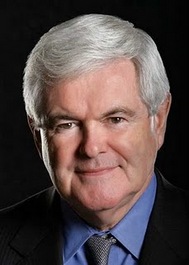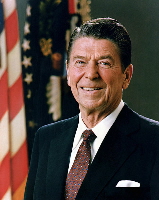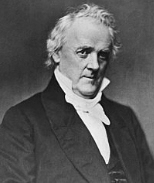Is Newt Gingrich Too Old to Beat Barack Obama?
In only two of the nation’s 56 presidential elections has the cycle’s older nominee been elected with a greater age difference than Gingrich vis-à-vis Obama

Or perhaps by sharing the debate stage with 76 year-old Ron Paul, he appears younger than his 68 years.
Or perhaps Americans are becoming less ageist, are evolving in their views as to how old a president can be.
Whatever the explanation, Newt Gingrich is surging in the polls and his elevated age has not become even the slightest issue in the campaign to date.
As a result, Republican voters are positioning themselves (for the moment) to once again nominate a presidential candidate to run against a much younger Democrat.
That strategy hasn’t worked out so well in recent years, and one would expect Republicans are keenly aware that the last three victorious Democratic presidential candidates were all quite youthful: 46 years old (Clinton, 1992), 50 years old (Clinton, 1996), and 47 years old (Obama, 2008).
The Republican nominees, meanwhile, were all substantially older during these elections, and, in fact, these three cycles were marked by the three greatest age disparities among major party nominees in U.S. presidential history:
· In 2008, John McCain was 24 years, 11 months, and 7 days older than Barack Obama.
· In 1996, Bob Dole was 23 years and 29 days older than Bill Clinton.
· In 1992, George H.W. Bush was 22 years, 2 months, and 1 day older than Clinton.
And how has the Republican Party responded to this trend in the 2012 election cycle?
First, each of the party’s “young gun” all-stars opted to sit this one out on the sidelines: Marco Rubio (age 40), Bobby Jindal (40), Paul Ryan (41), Sarah Palin (47), and Chris Christie (49).
Meanwhile, the 2012 GOP field’s two youngest candidates made quick exits from the race: Michigan U.S. Representative Thad McCotter (age 45) and former Minnesota Governor Tim Pawlenty (51).
The next four youngest contenders currently comprise the bottom four slots in both national and state public opinion polls: Jon Huntsman (age 51), Rick Santorum (53), Michele Bachmann (55), and Rick Perry (61).
Thus, with the three oldest 2012 GOP White House hopefuls residing at the top of the polls this cycle – in Gingrich (age 68), Mitt Romney (64), and Ron Paul (76) – the Republican Party seems destined, once again, to put up a nominee who is substantially older than the Democrat.
And if that nominee is Gingrich – who would be 69 years old on Election Day – the party would seemingly be taking another historic gamble.

This ‘old age’ baseline in the U.S. – despite the visual (i.e. televised) age in which Americans live – may have risen in recent decades along with the increase in life expectancy.
For example, when Ronald Reagan was elected president in 1980, the average male could expect to live 70 years according to the U.S. Census Bureau. The life expectancy for the average male born today is nearly 10 percent longer at 76 years.
Throughout history, younger candidates have not had an advantage over their older opponents per se.
In fact, the older nominee has won 29 elections versus 24 for the younger nominee (with three nominees running unopposed in 1789, 1792, and 1820).
But that is not to say the age differential between President Obama and the former House Speaker would not be striking.
Gingrich, born on June 19, 1943, is 18 years, 1 month, and 17 days older than Obama (born August 4, 1961).
In only two of the nation’s 56 presidential elections has the cycle’s older nominee been elected with a greater age disparity than Gingrich vis-à-vis Obama.

Buchanan – a former U.S. Secretary of State, U.S. Senator, U.S. Representative, and Ambassador dating back 35 years to the early 1820s – was 21 years, 8 months, and 30 days older than Frémont.
Up until that contest, the previous record for greatest age disparity in favor of the elder candidate was James Madison in his victory over DeWitt Clinton in 1812. Madison was 17 years, 11 months, and 15 days older than Clinton.
Buchanan, who was 65 years old on Election Day in 1856, has seen his mark hold for the next 150+ years, with the only cycle close to eclipsing his mark coming in 1944, when Franklin Roosevelt was elected to a fourth term.
In that cycle, Roosevelt was 20 years, 1 month, and 25 days older than Republican challenger Thomas Dewey.
In each of the five other instances in U.S. history in which one of the major party presidential nominees was at least 18 years older than his opponent – the older nominee lost.
In addition to the aforementioned 1992, 1996, and 2008 cycles, the other instances came in 1844 when Henry Clay lost to James Polk (with Clay 18 years, 6 months, and 22 days Polk’s senior) and in 1852 when Winfield Scott lost to Franklin Pierce (with Scott 18 years, 5 months, and 11 days Pierce’s senior).
And then there is this fact.
Of the 12 instances in which a winning presidential candidate was 10 or more years older than this opponent, nine were incumbents, two ran in open seat contests, and just one defeated a sitting president (Ronald Reagan over Jimmy Carter in 1980 (at 13 years, 7 months, and 26 days):
The nine incumbents were FDR over Thomas Dewey in 1944 (20 years, 1 month, 25 days), James Madison over DeWitt Clinton in 1812 (17 years, 11 months, 15 days), Harry Truman over Dewey in 1948 (17 years, 10 months, 17 days), Abraham Lincoln over George McClellan in 1864 (17 years, 9 months, 22 days), William McKinley over William J. Bryan in 1900 (17 years, 1 month, 20 days), Ronald Reagan over Walter Mondale in 1984 (16 years, 11 months, 0 days), Lincoln over John Breckinridge in 1860 (11 years, 11 months, 5 days), Andrew Jackson over Henry Clay in 1832 (10 years, 29 days), and FDR over Wendell Wilkie in 1940 (10 months, 20 days).
The two open seat winners were James Buchanan over John Frémont in 1856 (21 years, 8 months, 30 days) and William McKinley over William J. Bryan in 1896 (17 years, 1 month, 20 days).
But it is not simply the difference in age between Obama and Gingrich that stands out, but Gingrich’s age in and of itself.
If nominated next summer and victorious next November, Gingrich would become the second oldest man elected president at 69 years, 4 months, and 19 days.
Only Ronald Reagan was older when he was elected in 1980 (69 years, 8 months, 30 days) and reelected in 1984 (73 years, 9 months, 1 day).
It is then perhaps no coincidence that Gingrich has far and away cited Ronald Reagan in the debates more than any other candidate.
Despite this history, Gingrich is hoping that the definition of ‘change’ in 2012 marks a return to an (old) familiar face.
Age Difference Between Winning and Losing Presidential Candidates
|
Year
|
Winner
|
Loser
|
Years
|
Months
|
Days
|
|
1856
|
James Buchanan
|
John Fremont
|
21
|
8
|
30
|
|
1944
|
Franklin Roosevelt
|
Thomas Dewey
|
20
|
1
|
25
|
|
1812
|
James Madison
|
DeWitt Clinton
|
17
|
11
|
15
|
|
1948
|
Harry Truman
|
Thomas Dewey
|
17
|
10
|
17
|
|
1864
|
Abraham Lincoln
|
George McClellan
|
17
|
9
|
22
|
|
1900
|
William McKinley
|
William J. Bryan
|
17
|
1
|
20
|
|
1896
|
William McKinley
|
William J. Bryan
|
17
|
1
|
20
|
|
1984
|
Ronald Reagan
|
Walter Mondale
|
16
|
11
|
0
|
|
1980
|
Ronald Reagan
|
Jimmy Carter
|
13
|
7
|
26
|
|
1860
|
Abraham Lincoln
|
John Breckinridge
|
11
|
11
|
5
|
|
1832
|
Andrew Jackson
|
Henry Clay
|
10
|
0
|
29
|
|
1940
|
Franklin Roosevelt
|
Wendell Wilkie
|
10
|
0
|
20
|
|
1840
|
William H. Harrison
|
Martin Van Buren
|
9
|
9
|
27
|
|
1824
|
John Q. Adams
|
Henry Clay
|
9
|
9
|
2
|
|
1972
|
Richard Nixon
|
George McGovern
|
9
|
6
|
11
|
|
1988
|
George H.W. Bush
|
Michael Dukakis
|
9
|
4
|
23
|
|
1956
|
Dwight Eisenhower
|
Adlai Stevenson
|
9
|
3
|
23
|
|
1952
|
Dwight Eisenhower
|
Adlai Stevenson
|
9
|
3
|
23
|
|
1856
|
James Buchanan
|
Millard Fillmore
|
8
|
8
|
16
|
|
1796
|
John Adams
|
Jefferson
|
7
|
5
|
15
|
|
1968
|
Richard Nixon
|
George Wallace
|
6
|
7
|
17
|
|
1936
|
Franklin Roosevelt
|
Alf Landon
|
5
|
7
|
11
|
|
1916
|
Woodrow Wilson
|
Charles Evans Hughes
|
5
|
3
|
15
|
|
1824
|
John Q. Adams
|
William Crawford
|
4
|
7
|
14
|
|
1920
|
Warren Harding
|
James Cox
|
4
|
4
|
30
|
|
1860
|
Abraham Lincoln
|
Stephen Douglas
|
4
|
2
|
12
|
|
1888
|
Benjamin Harrison
|
Grover Cleveland
|
3
|
6
|
27
|
|
1804
|
Thomas Jefferson
|
Charles Pinckney
|
2
|
10
|
13
|
|
1908
|
William Taft
|
William J. Bryan
|
2
|
6
|
5
|
|
1912
|
Woodrow Wilson
|
Teddy Roosevelt
|
1
|
10
|
0
|
|
2000
|
George W. Bush
|
Al Gore
|
1
|
8
|
26
|
|
1924
|
Calvin Coolidge
|
John Davis
|
0
|
9
|
10
|
|
1912
|
Woodrow Wilson
|
William H. Taft
|
0
|
8
|
19
|
|
1964
|
Lyndon Johnson
|
Barry Goldwater
|
0
|
4
|
7
|
|
1828
|
Andrew Jackson
|
John Q. Adams
|
0
|
3
|
27
|
|
1824
|
John Q. Adams
|
Andrew Jackson
|
-0
|
3
|
27
|
|
1928
|
Herbert Hoover
|
Al Smith
|
-0
|
7
|
12
|
|
1968
|
Richard Nixon
|
Hubert Humphrey
|
-1
|
7
|
14
|
|
1848
|
Zachary Taylor
|
Lewis Cass
|
-2
|
1
|
16
|
|
2004
|
George W. Bush
|
John Kerry
|
-2
|
6
|
26
|
|
1816
|
James Monroe
|
Rufus King
|
-3
|
1
|
5
|
|
1892
|
Grover Cleveland
|
Benjamin Harrison
|
-3
|
6
|
27
|
|
1892
|
Grover Cleveland
|
James Weaver
|
-3
|
8
|
25
|
|
1960
|
John Kennedy
|
Richard Nixon
|
-4
|
4
|
21
|
|
1808
|
James Madison
|
Charles Pinckney
|
-5
|
0
|
20
|
|
1904
|
Teddy Roosevelt
|
Alton Parker
|
-6
|
5
|
14
|
|
1884
|
Grover Cleveland
|
James Blaine
|
-7
|
1
|
19
|
|
1800
|
Thomas Jefferson
|
J. Adams
|
-7
|
5
|
15
|
|
1932
|
Franklin Roosevelt
|
Herbert Hoover
|
-7
|
5
|
21
|
|
1880
|
James Garfield
|
Winfield Hancock
|
-7
|
9
|
6
|
|
1876
|
Rutherford Hayes
|
Samuel Tilden
|
-8
|
7
|
26
|
|
1836
|
Martin Van Buren
|
William H. Harrison
|
-9
|
9
|
27
|
|
1976
|
Jimmy Carter
|
Gerald Ford
|
-11
|
2
|
18
|
|
1872
|
Ulysses Grant
|
Horace Greeley
|
-11
|
2
|
25
|
|
1868
|
Ulysses Grant
|
Horatio Seymour
|
-11
|
10
|
28
|
|
1860
|
Abraham Lincoln
|
John Bell
|
-12
|
11
|
26
|
|
1996
|
Bill Clinton
|
Ross Perot
|
-16
|
1
|
24
|
|
1992
|
Bill Clinton
|
Ross Perot
|
-16
|
1
|
24
|
|
1924
|
Calvin Coolidge
|
Robert LaFollette
|
-17
|
1
|
1
|
|
1852
|
Franklin Pierce
|
Winfield Scott
|
-18
|
5
|
11
|
|
1844
|
James Polk
|
Henry Clay
|
-18
|
6
|
22
|
|
1992
|
Bill Clinton
|
George H.W. Bush
|
-22
|
2
|
1
|
|
1996
|
Bill Clinton
|
Bob Dole
|
-23
|
0
|
29
|
|
2008
|
Barack Obama
|
John McCain
|
-24
|
11
|
7
|
Notes: Includes major third party candidates that received a significant percentage of the vote and appeared on most state ballots. The elections of two presidents – George Washington (1789, 1792) and James Monroe (1820) – are not listed as they ran without opposition. Table compiled by Smart Politics.
Follow Smart Politics on Twitter.

I recall Newt & Jesse Helms. Really not impressed. They are busy how they look instead of what they N & J really are. If you serve the people & represent the people it is far better to express rather than impress. Let’s get real people. Thank you for submitting your communication though I do not agree with all points. 44 yo.